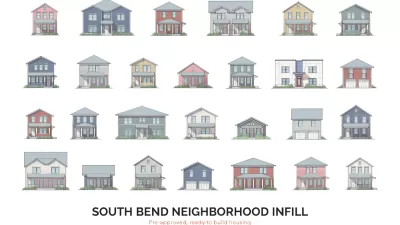Pushback against hedge funds buying and renting out single-family houses grows as elected officials in a handful of state legislatures seek to curb the trend amid the housing affordability crisis.

Following reports early in the year that investors snapped up a record number of homes to rent out in the fourth quarter of 2023, Democrats in the U.S. Senate and House introduced legislation in January that would ban hedge funds from the single-family housing market and require them to sell off all single-family homes they own over a decade. Momentum is now growing at the state level, according to a Wall Street Journal article by Will Parker.
Lawmakers in Ohio, Nebraska, California, New York, Minnesota, and North Carolina have proposed laws aimed at stopping Wall Street investors’ “home-buying spree,” which bill sponsors say are driving up home prices, pushing individual home buyers out of the market, and contributing to low inventory of affordable properties.
Some bills focus on limiting the number of rental-home ownership a company can own, forcing them to divest of any properties over that number — 100 under the North Carolina bill, 50 under the U.S. House and Senate bills and 20 under a Minnesota bill. Other states’ bills, including Ohio’s, would tax investor-landlords on what they consider to be excess properties to such an extent that they would be “compelled to sell,” reports Parker.
While most calls are coming from liberals, Parker writes that an increasing number of conservatives are expressing a need to curb the trend. One Republican Ohio senator described his state’s bill as “antitrust in spirit,” according to the WSJ. And though voters appear to be in favor them, the bills are not gaining traction in legislatures. Critics of such measures argue the culprit is lack of supply and high interest rates, not large single-family rental companies.
FULL STORY: Wall Street Has Spent Billions Buying Homes. A Crackdown Is Looming.

Planetizen Federal Action Tracker
A weekly monitor of how Trump’s orders and actions are impacting planners and planning in America.

Map: Where Senate Republicans Want to Sell Your Public Lands
For public land advocates, the Senate Republicans’ proposal to sell millions of acres of public land in the West is “the biggest fight of their careers.”

Restaurant Patios Were a Pandemic Win — Why Were They so Hard to Keep?
Social distancing requirements and changes in travel patterns prompted cities to pilot new uses for street and sidewalk space. Then it got complicated.

Platform Pilsner: Vancouver Transit Agency Releases... a Beer?
TransLink will receive a portion of every sale of the four-pack.

Toronto Weighs Cheaper Transit, Parking Hikes for Major Events
Special event rates would take effect during large festivals, sports games and concerts to ‘discourage driving, manage congestion and free up space for transit.”

Berlin to Consider Car-Free Zone Larger Than Manhattan
The area bound by the 22-mile Ringbahn would still allow 12 uses of a private automobile per year per person, and several other exemptions.
Urban Design for Planners 1: Software Tools
This six-course series explores essential urban design concepts using open source software and equips planners with the tools they need to participate fully in the urban design process.
Planning for Universal Design
Learn the tools for implementing Universal Design in planning regulations.
Heyer Gruel & Associates PA
JM Goldson LLC
Custer County Colorado
City of Camden Redevelopment Agency
City of Astoria
Transportation Research & Education Center (TREC) at Portland State University
Camden Redevelopment Agency
City of Claremont
Municipality of Princeton (NJ)





























